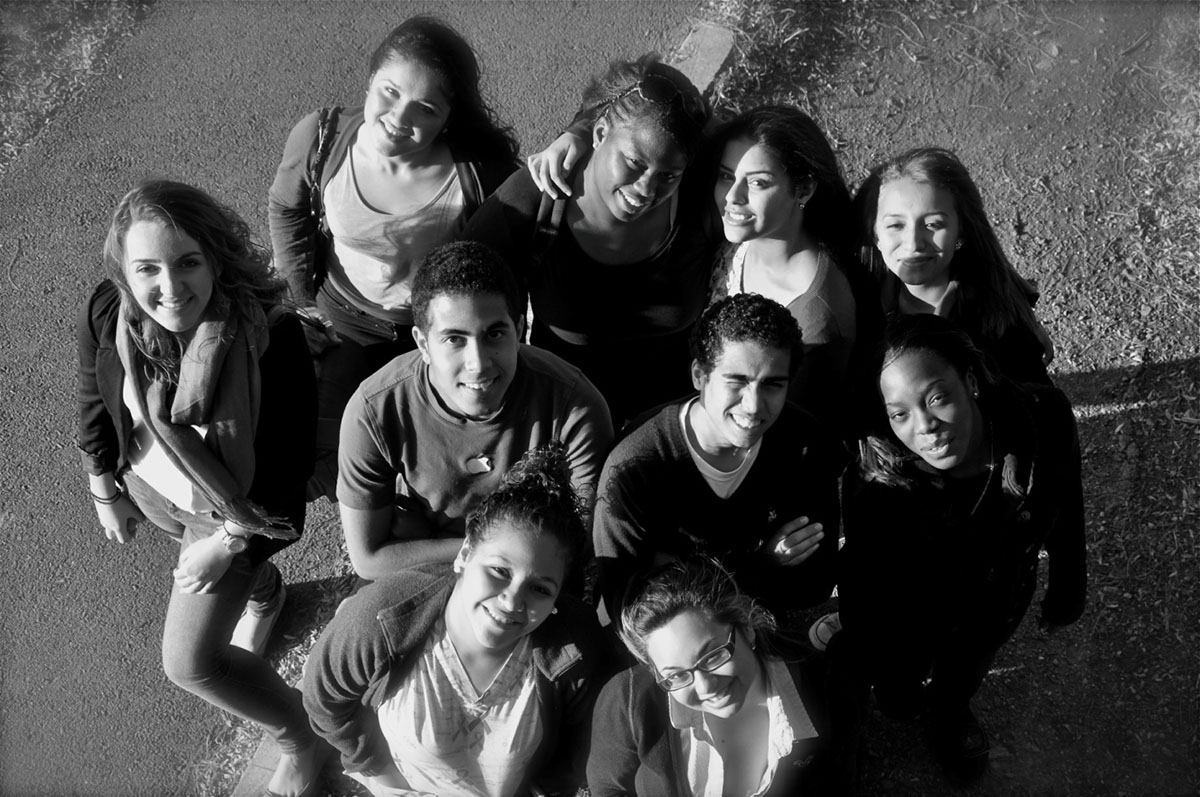Mass General Program Prepares Students for College, Career Success

Some of Mass General’s Bicentennial Scholars/Photo provided
This spring, Chantelle Jones became a proud Boston College alumna, graduating with a degree in management and leadership. She’s taken a job in hospital human resources and says she hopes, someday, to get a master’s degree in healthcare administration and open her own hospital.
It’s a fitting goal for one of Massachusetts General Hospital’s first Bicentennial Scholars.
As part of its 200th anniversary celebration in 2011, Mass General created the Bicentennial Scholars Program to encourage local students to graduate high school, enter college, and pursue health and science careers. Twenty-five students from its inaugural class began college, and 13, including Jones, graduated this year.
“Everything they do is geared to better you, to better yourself,” Jones says.
Mass General has run programming for elementary, middle, and high school students since 1988, but Bicentennial Scholars is the first to cater exclusively to high school students interested in health and science careers. So far, 76 percent of its students are on track to graduate college in four or five years, compared to an overall 51 percent six-year graduation rate among college-bound Boston Public Schools graduates.
Joan Quinlan, vice president for community health at Mass General, says there’s a disconnect between the number of students who enter higher education and those who graduate, a problem Bicentennial Scholars seeks to rectify.
“We already had a commitment to these young people,” she says. “So we said, ‘What can we do to enhance their success once they get into this college?’”
Each year, 30 Bicentennial Scholars are selected from roughly 90 applicants. Students from East Boston High School, the Edward M. Kennedy Academy for Health Careers, and other local schools are eligible for the program, so long as they have a GPA of at least 3.0.
Each Bicentennial Scholar receives an annual grant of up to $5,000, as well as extensive coaching, pre-college planning, and SAT preparation. When students matriculate, they are paired with individual coaches from a nonprofit called Accelerated College Experiences.
“We plant the seed about college preparation and readiness beginning in their ninth grade year,” says Christy Egun, who oversees the program and is the director of Boston partnerships for Mass General’s Center for Community Health Improvement. “You have big dreams, we have big dreams for you as well, this is where you begin to do the work around that.”
Looking forward, both Quinlan and Egun believe that they can maintain the success of the program—a necessity, they say, because educational achievement often influences income, which in turn plays a role in lifelong health.
Social factors, such as education, influence roughly 75 percent of a person’s health, according to the CDC. It’s that reality that motivates Quinlan, Egun, and the rest of their team every single day.
“Our ultimate goal with this [program] is to make sure we have students who are healthy and successful contributors to the community,” Egun says. “That’s why my colleagues and I wake up in the morning, and at the end of the day we ask ourselves, ‘Did we do that? Are we moving in that direction and towards that mission?’”


